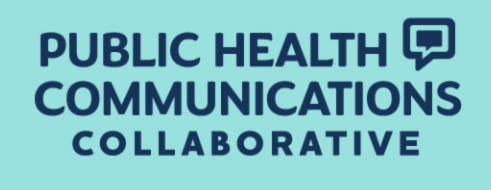This morning, I was reading my daily dose of email newsletters, when I came across an old, but great article from www.searchengineland.com. It neatly summarized seven reasons (that I always touch upon personally in my discussions with clients) about how now is a great time for a Pay Per Click (PPC) campaign.
Let me help you make it even easier for you rule the next marketing discussion and tap into the most tragically underutilized area of digital marketing — Pay Per Click advertising campaigns.
Most of your untapped potential online marketing action is on the PPC side even though the the whole world is focusing on SEO right now.
As of late, Google says almost 65% of searchers are clicking paid ads. Sixty five percent! And the number only keeps rising as Google continually expands opportunities for PPC advertising.
SEO may be sexy, but PPC is where the real potential is. If the world of internet marketing was the stock market, PPC would be the options market. You can make a lot of money if you know what you are doing… you can also lose a lot if you don’t. Your tech guy probably has told you a lot of stories about the power of organic search and the analytics related to that. I used to argue the same points a while back, but stopped when I realized that while SEO works and has it’s rightfully important place, but is a tortoise compared to the hare called PPC.
Enough fanfare. Here are seven great reasons (edited for size) to start a PPC campaign, as listed by searchengineland.com:
- PPC works faster and can be more effective than SEO during the first few months while you’re still building your SEO traffic. Universal search is just the beginning of things that will continue to play havoc with your ranking when it comes to SEO. Do you want to play in the world of an index of billions of pages, often winding up in no better position than page 2 or 3, or would you rather drive additional, predictable traffic to offers you create directly, each and every day without fail? If you prefer the second option, PPC is the way to go.
- A huge chunk of Google’s resources go right into developing the paid search marketing platform, features, systems and services. Google will do anything to keep paid ads front and center and get you results so that you remain happy spending there, because it is a massive source of revenue for the company. So why not use PPC? Google knows it works. That’s why their resources are put there. As one of the biggest and most trusted companies in the world, that devotes more energy and resources than nearly any other company to the development of digital marketing tools, why not trust their research?
- Custom reports and analytics allow for near instant changes and results. Want to get a breakdown of your New York City geo-targeted campaign, or to see a breakout of the number of clicks? Want to see which of eight ads pulled the best click-through-rate (CTR)? That’s all in the AdWords back end. Try getting such actionable analytics from the organic SEO helpers division of Google. I’ll save you the time — you won’t be able to get data at this level of specificity from most SEO providers, and you won’t get it quickly (the average SEO campaign takes between 4-8 months to see consistent results).
- Targeting is continually getting better and more precise. It’s taken years of Google turning the flywheel and optimizing each part.
- Google has taken steps to reduce the participation of some shady business models who compete with you for eyeballs on the same queries, or business owners with shady privacy policies; Google proactively filters click fraud; Display URLs and strong brand recognition help with Quality Score — Google seems to have tuned the system to help brands that consumers are more likely to deem reliable and clickworthy.
- Google has launched several new tools to help with bid strategy. They even have a video of Google’s Chief Economist Hal Varian commenting on bid strategy. Think you can get an SEO position simulator tool out of the organic SEO helpers division of Google? (There isn’t one, remember, although to be fair, Google Webmaster Tools is a great tool too.)
- Rapid feedback and rapid results with less risk. There remains no better mechanism to gain rapid response to different ad copy variations, to gauge consumer keyword search patterns as they apply to your business, to learn about geo-specific buying patterns, etc. There is far less risk to testing offers and marketing strategies rapidly—using paid search—than there is to tinkering with the nuts and bolts of your website’s content and architecture in the hopes of a medium to long term boost in organic traffic.
Keep in mind, I am not saying SEO is bad. The return on investment for SEO is greater over the long term, but with all of the latest changes, it will take a while. It is difficult to ramp up quickly. Paid search, by contrast, scales up quickly, and particular segments and tactics can be tested with relative ease. Most big companies are in the process of figuring out how to migrate some dollars out of their bloated traditional ad spends into the digital sphere because more clients are finding businesses to work with over the internet, so now is the time to get in! Paid search is about half of all digital ad spend for good reason. Trying to acquire those same customers through other channels, especially offline channels like the yellow pages or coupon mailers, will typically be costlier.
There are many hurdles to doing this right, which just makes the reward sweeter for those who do a lot better than their competition. The easiest way around these hurdles is to have someone with Certified Google Adwords Professionals navigate the waters for you. It’s tempting to hold out hope that SEO and some word-of-mouth grassroots stuff can do it all for you. It will if you do it right… again… over much time. For most businesses in conventional industries that do a lot of their selling online, paid search can and should work.
Paid search isn’t sexy. Nor is it tailor-made for penny-pinchers. Its an ROI-driven direct response channel. But it’s worth the effort if you see it through and can produce a quick ROI through sales or extremely valuable information.
(Portions of this blog were borrowed directly from searchengineland.com because I am a bit lazy today, but they were condensed to make it a quicker read!)






